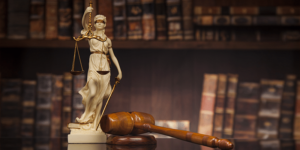The digital age has ushered in a multitude of advancements, not least of which is the rise of artificial intelligence (AI). Recently, these innovations have taken a curious and somewhat controversial turn with the AI resurrection of the legendary musician and former Beatle, John Lennon. While this technological marvel promises an uncanny experience for fans worldwide, it also poses significant ethical and legal questions concerning posthumous rights.
The AI Revival:
AI’s reach has expanded to virtually every domain, from healthcare to music. The technology’s capacity to create realistic depictions of deceased persons has been demonstrated through deepfake videos and now, intriguingly, in the AI revival of John Lennon. The Beatles co-founder, globally renowned for his songwriting and activism, was tragically assassinated in 1980. Yet, in a startling technological feat, Lennon’s voice, likeness, and even his personality have been resurrected through AI.
The AI model, developed using machine learning techniques, was trained on countless hours of Lennon’s music, interviews, and public appearances. It was designed to not only emulate Lennon’s vocal style but also to generate new compositions in his distinctive musical voice. This has allowed for a posthumous ‘comeback’ of sorts, giving fans the opportunity to experience new music from their idol, over four decades after his death.
The Posthumous Rights Quandary:
As enthralling as this AI resurrection may be, it inevitably raises complex ethical and legal dilemmas. The key question is: who has the right to control, use, and profit from a deceased individual’s persona, and to what extent?
Posthumous rights, also known as personality rights or rights of publicity, typically protect an individual’s likeness, name, and other aspects of their personality from unauthorized commercial use. Laws around these rights vary widely globally, and in some jurisdictions, these rights can be inherited or transferred after death. However, when it comes to AI revivals, the legal landscape becomes muddied.
John Lennon’s AI revival poses an interesting case study. His estate, overseen by Yoko Ono and his two sons, might have the authority to sanction this use of his persona. But does this authority extend to generating new works in Lennon’s name? And what about the ethical implications of resurrecting a public figure without their consent, and potentially against their wishes?
John Lennon’s AI revival represents a brave new frontier in the intersection of technology and celebrity. While it offers fans a tantalizing taste of ‘new’ content from their beloved icon, it also opens a Pandora’s box of ethical and legal dilemmas. As AI continues to push boundaries, it is incumbent upon our legal systems to evolve alongside it, ensuring that the rights of individuals, even posthumously, are respected and protected. In the end, it’s not just about keeping the memory of figures like Lennon alive, but also preserving their dignity and agency, even after they’re gone.
In the words of Lennon himself, “Reality leaves a lot to the imagination.” In an era where AI can blur the lines between reality and imagination, how we navigate posthumous rights will undoubtedly leave a lasting impact on our collective future.










